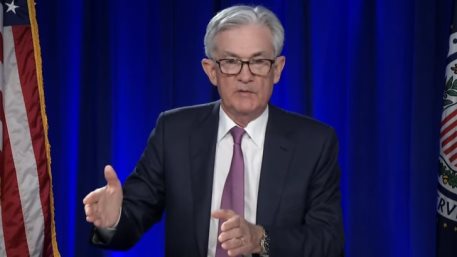
Many governments have opted to use the term ‘warlike’ to describe their efforts in the struggle to mitigate the outbreak of the novel coronavirus pandemic, which has already turned into one of the 21st century's most momentous events. In few short weeks, we have witnessed an unprecedented scramble amongst many different governments to tighten up their grips on national economies, in a bid to save them from plunging into a deep recession and steer them away from harm. Many governments have restricted international as well as internal travel – a keystone of liberal democracy – intending to curb the spread of the virus.
With global government efforts to curtail the spread of the pathogen and steer national economies out of recession becoming increasingly more pronounced, many social commentators and political analysts have started to express fears regarding this massive scramble for political power under the pretext of national emergency. They fear that governments would be unwilling to relinquish their newly acquired political power after the situation normalizes, and would rather retain the power politics in a post-pandemic world. Such a scenario is undoubtedly going to deliver a severe blow to the neoliberal wave of the last decades, both in the political and the economic spectrums, but is totalitarianism indeed on the rise once again?
The crux of the argument is that in a historical context, each time states that have experienced such massive expansions of power and authority, have never willingly let go of that power after dealing with their underlying trials and tribulations. So, what is different now, and why should we expect to see a different outcome?
The term ‘warlike effort’ to fight the COVID-19 pandemic should be understood in the right context. Governments use it to underscore the depth of the tremendous effort that is needed to contain the pathogen and survive the economic shock. Unlike in a real war, however, states are not fighting this battle alone.
At first glance, it would appear that the coronavirus can divide and isolate nations, seeing as how many states have decided to close down their borders to foreign visitors. On the other hand, international cooperation continues – Chinese epidemiologists have flown to Italy to council Italian specialists on the peculiarities of the virus; the ECB has pledged to help the reeling European economies, and the US has begun to reorganize parts of its industry to produce ventilators to help the massively overwhelmed hospitals.
The brightest example of the international effort to combat the common foe is the sharing of academic knowledge on the virus and its nature amongst states so that a vaccine can be developed. In the entire history of humankind, never during a ‘warlike situation’ have so many scientists exchanged so much information with each on such a grand scale. Even North Korea, which is the most tightly controlled and isolated state in the world, has asked the international community for help. This goes to show that the pandemic compels governments to consolidate some aspects of their power, but also to cooperate with each other on different levels.
We have to believe that the lessons from the 20th century have been learned the hard way and that we are not going to repeat the same mistakes of the past. Consolidation of power at a time of national crisis could very well be a necessary evil. But governments must have learned by now that emergencies do not last, and after they are dealt with the only way for achieving long-lasting prosperity is through cooperation on the free market.




















